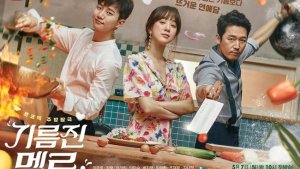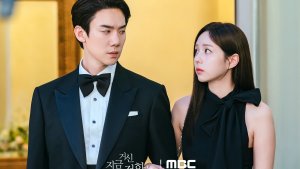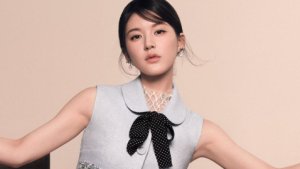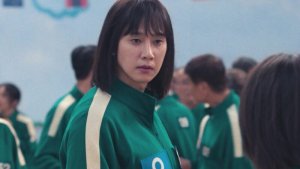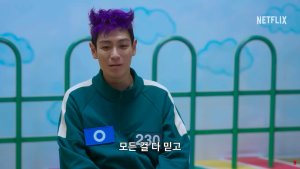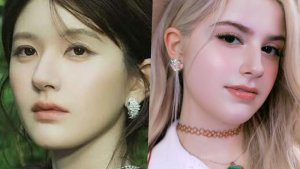 Currently Watching: Zombie Detective
Currently Watching: Zombie Detective
What You Can Really Learn From Drama
I have watched so many Japanese, Taiwanese and Korean drama that I think I know the typical patterns and there aren't many new story-lines. Sometimes I just skip a few scenes (and some of you even skip whole episodes) because I know what will happen anyways. So why still watch? I always liked to discuss the stupid unrealistic things that happen in dramas and l love watching people making fun of it. But actually there is a lot I did learn from watching drama beside the fact that poor clumsy girls always get the rich handsome guys. Since I study Asian studies and ethnology the question is really interesting to me. I have been to Taiwan, China, Korea and Japan myself, though only for a short time, and want to share with you a few of my experiences about what I learned.
1. Food
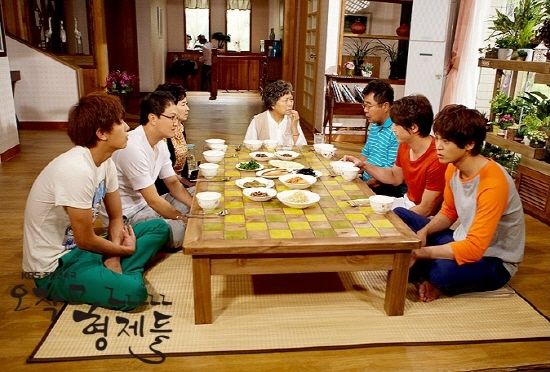
In Ojakgyo Brothers they only start to eat after the Grandma said they could)
In every drama you get to see people eat lots of stuff and you are suddenly craving things you don’t even know the smell or taste of. And they actually eat it! (Has anyone seen Gilmore Girls? They always sat in front of their big hamburger and never ate it. So frustrating. >_<) Anyways you don’t only get to know typical food, but also learn about their eating habits: for example, how to eat things, when to use chopsticks, a spoon, knife or fork. Also where and how they sit and who gets to eat first. Whereas rich people are often portrayed eating western style food at tables, poorer families often sit on the floor eating traditional Asian dishes. They mostly film in real restaurants and whenever you go to an Asian country you can go there and already order some dishes (something I couldn't do when I first came to China)!
2. Housing

The home of Yamaguchi sensei in Gokusen is a traditional Japanese house)
Even though in Dramaland a lot of things are artificial, like when you think, ‘Hey that house is the same one as in the other drama,' you actually get to see a lot of things and places that exist in real life. I didn’t realize myself before I went there, that basically what they show is really what it looks like. For example some famous places like ‘Ximending’ in Taibei, where they filmed quite a lot of Taiwanese drama. When I first walked there it felt strangely familiar. When I went to visit my Korean friend I was shocked to find a family of 5 people living in a very small flat with only 1 combined kitchen/living room and 3 small bedrooms, so that the parents slept in the living room on the floor to give their children the bedrooms. And they are a middle-class family; it is just that Seoul has very crowded living conditions. But it was really life like in the drama. I even slept on the floor which I had never done before. No wonder the girls want to marry quickly to have their own home. ;P But also from the normal streets or the houses that are shown you can learn about Asian architecture, about how traditional houses and modern houses are build.
3. Family
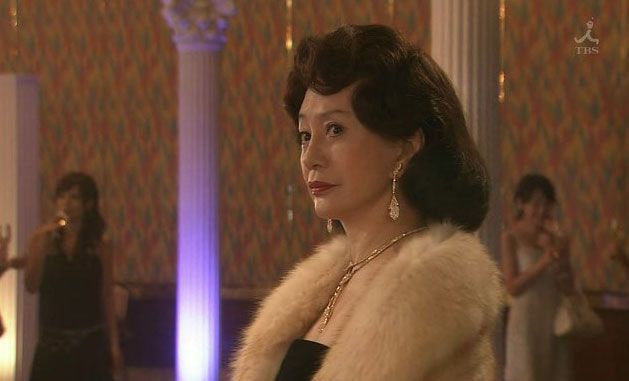
The typical evil rich mom, here Domyoji’s mom in Hana Yori Dango
Whenever I watch dramas I get so frustrated with some of the characters and their parents. You all know those evil parents who always interfering, thinking what they do is best for their child, and the children are not going against them. But I found out that this is just a reality of their culture which has a lot to do with Confucian ways of thinking and the concept of filial piety. Also the fact that people are respected more the older they are is visible everywhere. My Korean friend told me her older sister would be marrying soon. When I asked if she had a boyfriend, she replied: "No, it’s just she has reached the age to marry." When it comes to marriage parents always have a say and most children obey. The Chinese are especially strict, sending their children to matchmaking sessions before they are ‘too old’ (which is 27/28 for women and maybe 30 for men). This is why many young people hope to find someone in university and get married right after graduation. So whenever you think, 'How in the world those parents could do something like this!?' They would!
4. Custom
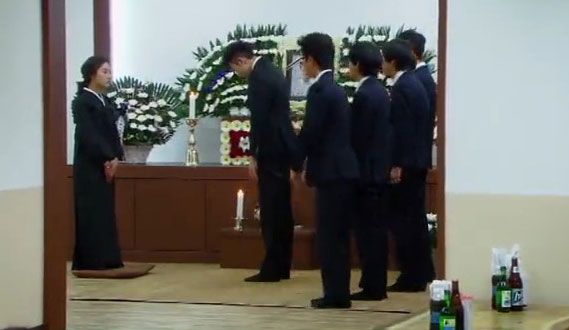
Flower Boy Ramyun Shop, funeral of Yang Eun Bi’s dad
In most dramas you can see some feasts and celebrations. They celebrate national holidays, like the ancestors day, or in the case of Japanese dramas, go to matsuri (festivals). There will also be at least one birthday, marriage or funeral in most dramas. You can watch how the feast is celebrated: for example, the procedures of a funeral, where in Korea all the guests do a special bow in front of the relatives and the picture of the deceased. Then, we also see them wearing traditional clothes, like hanbok in Korea and kimono in Japan. With many feasts there also comes special food: for example, the seaweed soup which is typical for Korean birthdays. And if you are ever invited to a Chinese wedding you will know that you have to give hongbao (red envelopes with money) as a present.
It is not only the customs of special occasions, but also the seemingly simple things that you can learn. You learn how to bow properly to a person, how to do the right ganbei (cheers) with someone, and how to react to people in basic ways. Subconsciously you learn a lot of customs that can be essential if you are in the situation yourself. They help you to not look like a complete idiot and make it easier for yourself to not look at everything they do in bewilderment.
5. History
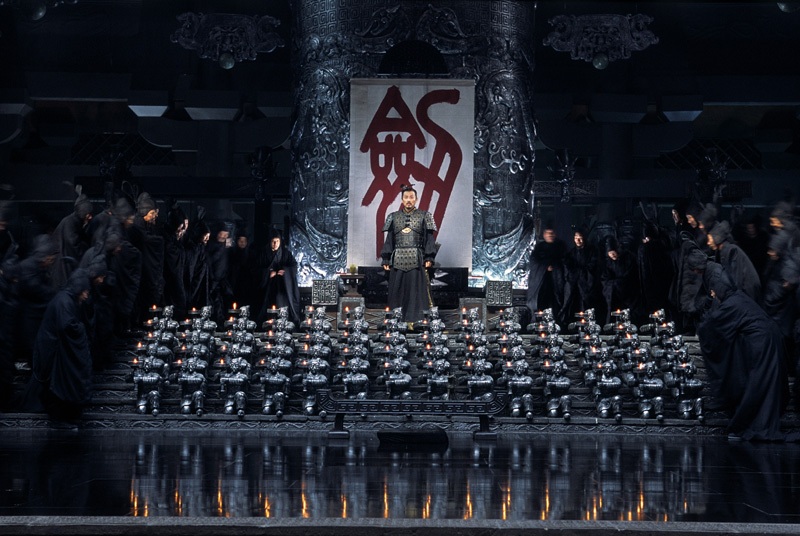
Zhang Yimou’s movie Hero, based on the famous legend of an attempted murder of China’s first Emperor
Thinking about custom leads me to another point: that of a country's cultural development and history. In historical dramas you can learn a lot about former life in Asia, even if it's not always that accurate and is instead mostly romanticized. Still, it often makes you want to learn about what happened. For example I looked up general Choi Young after watching Faith and read about the period of Japanese occupation of Korea after watching Bridal Mask. Beside that, you can learn about history in other dramas too by the references they make to famous historical personalities or facts that are commonly known and shared by people living in the country. In the Chinese language they have a lot of idioms, which often have a long history and can only be understood if you know the story behind it. Some really good subbers even explain them in extra subtitles.
And last but not least:
6. The Language

From the drama Hi My Sweetheart
Of course when we watch drama most of us need subtitles, because otherwise we would just be guessing about what is going on. I started learning my first words of Japanese with the anime Chobits (ittekimasu, itterassai, etc.). Now I watch Chinese drama without subtitles and can understand almost all of it. Of course you still need to study a language if you really want to learn it, but drama can be a great motivation for wanting to learn. You can start with some easy expressions that they frequently use, like ‘Hello’ ‘I’m hungry’ ‘I love you.' Then if you have reached a certain level of your studies you can really use it to practice your listening comprehension and get some more useful expressions used in daily life (expressing your feelings, buying stuff, food names), that you normally don’t learn in class. Good examples for this are the terms to address people like: sunbae, oppa, hyung etc. in Korean. If you commit yourself to learning an Asian language why not have fun with it at the same time?
I could tell you even more details about the different aspects, but the article is long enough as it is. I hope to have shown that even without noticing, we can learn a lot from watching drama. You can learn things that you normally would only be able to understand if you lived in a country and had to ask people for explanations all the time. Like this, when you move to one of those countries, drama can help you get over the so called ‘cultural shock’ faster, because you will not be plunged into a world that's so different or foreign. You can already relate to some things and are familiar with some of the customs. A disadvantage can be that some of those things seem so natural already that you don’t even think it’s special and don’t feel the excitement of being in a foreign country. But knowing something can make you want to experience it and you might enjoy it more, like finally eating the food you always saw them eating in dramas, walking down a road where they filmed a scene you liked, or going to a Japanese festival seeing lots of pretty kimono.
My main reason for watching drama is still to escape reality for a while. But some glimpses of reality can also be found in Dramaland. ;)



